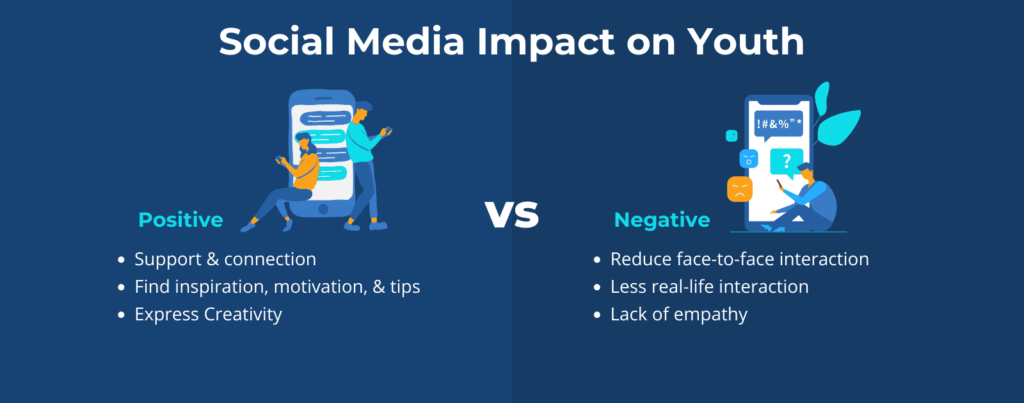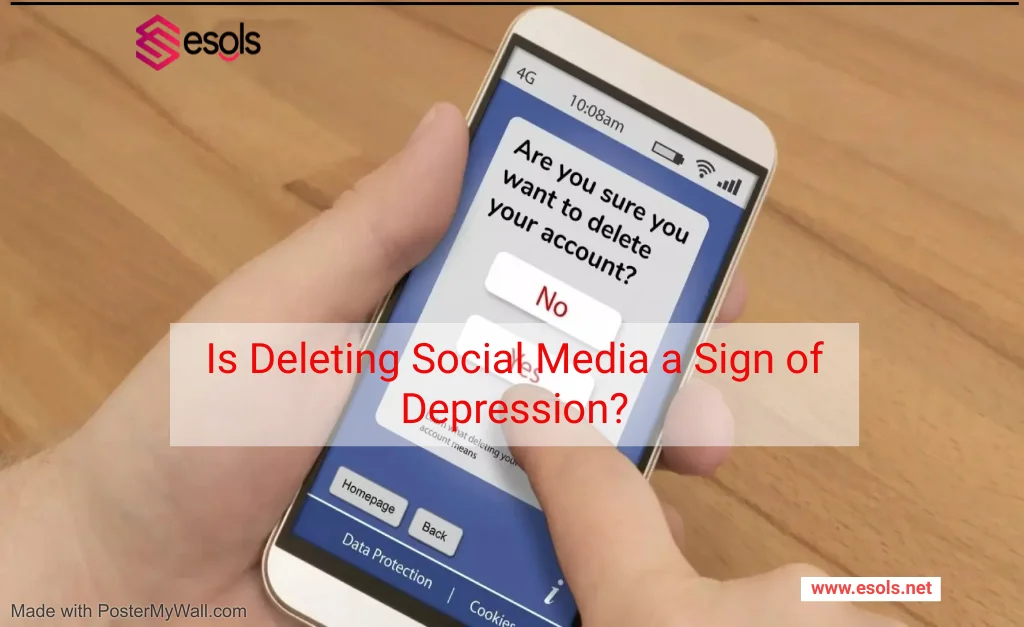The digital age has ushered in an era where social media has become an integral part of our daily lives. However, the relationship between social media and mental health is increasingly under scrutiny. Deleting social media accounts has raised questions about the state of mental well-being, often sparking concerns about potential signs of depression. let Dive in To the topic Is Deleting Social Media a Sign of Depression?
Table of contents
The Complex Relationship: Social Media and Mental Health
In today’s interconnected world, social media platforms offer connectivity, entertainment, and information dissemination. Yet, the constant exposure to curated content, comparison culture, and the need for validation can significantly impact mental health. The continuous online presence can lead to feelings of inadequacy, loneliness, and anxiety, potentially contributing to depressive symptoms.

Identifying Signs of Depression
Recognizing signs of depression involves observing behavioral patterns. Social withdrawal, loss of interest in previously enjoyed activities, changes in sleep or appetite, and persistent feelings of sadness are key indicators. Studies suggest a correlation between excessive social media use and depressive symptoms, highlighting the need for scrutiny.
| Signs of Depression | Behavioral Patterns |
| Social Withdrawal | Avoidance of social interactions, isolation from friends/family |
| Loss of Interest | Disinterest in hobbies, lack of enthusiasm for once-enjoyed activities |
| Sleep Changes | Insomnia or excessive sleeping, disrupted sleep patterns |
| Appetite Changes | Significant weight loss or gain, alterations in eating habits |
| Persistent Sadness | Continuous feelings of unhappiness, hopelessness, or emptiness |
| Fatigue | Consistent lack of energy, tiredness, or sluggishness |
| Difficulty Concentrating | Inability to focus, make decisions, or concentrate on tasks |
The Decision to Delete Social Media: Sign of Depression or a Conscious Choice?
While deleting social media might raise concerns, it can also signify a conscious effort to prioritize mental health. Factors such as cyberbullying, information overload, or the need for a digital detox can influence this decision. Distinguishing between healthy detachment and depressive behavior is crucial in understanding the intent behind social media deletion.
Positive and Negative Impacts of Social Media
Social media isn’t inherently negative; it offers a platform for connection, activism, and knowledge sharing. However, its negative impacts, like fostering unrealistic standards, promoting comparison, and perpetuating addictive behavior, contribute to mental health struggles.

Connection:
- Facilitates easy and instant communication with friends, family, and communities globally.
- Helps in maintaining relationships despite geographical barriers.
Information Sharing:
- Acts as a hub for sharing news, educational content, and awareness on various issues.
- Allows for the rapid dissemination of valuable information during emergencies or crises.
Opportunities for Expression:
- Provides a platform for self-expression, creativity, and showcasing talents.
- Amplifies diverse voices, allowing marginalized groups to be heard and represented.
Business and Networking:
- Enables businesses to reach a broader audience, promoting products and services.
- Facilitates professional networking and career opportunities through platforms like LinkedIn.
Managing Social Media for Better Mental Well-being
In today’s digital era, managing social media for better mental well-being requires a proactive approach. Setting boundaries is crucial; establish designated times for social media use and stick to them. Avoiding excessive scrolling or checking during designated “offline” periods can significantly reduce stress and mental fatigue.
Curating content plays a pivotal role. Unfollow accounts that promote negativity or trigger feelings of inadequacy. Instead, follow those that inspire, educate, or bring joy. Actively selecting the content, you consume can create a more uplifting and positive online experience.
Conclusion
The decision to delete social media doesn’t singularly signify depression but can be a conscious step toward prioritizing mental health. Understanding the complex relationship between social media and mental health is crucial in navigating its impact on individual well-being.
Readmore : What Is a Social Media Handle? Understanding Its Significance
FAQ’s
Deleting social media can signify various reasons, including a need for a break or prioritizing mental health. It’s essential to assess individual motivations.
Yes, when used mindfully, social media can foster connections, provide support, and spread positivity, contributing positively to mental well-being.
Setting time limits, curating content, engaging selectively, and seeking offline connections are effective strategies for managing social media use.
Healthy detachment involves a conscious choice to prioritize mental health, while depressive behavior is characterized by persistent sadness, withdrawal, and disinterest in daily activities.




